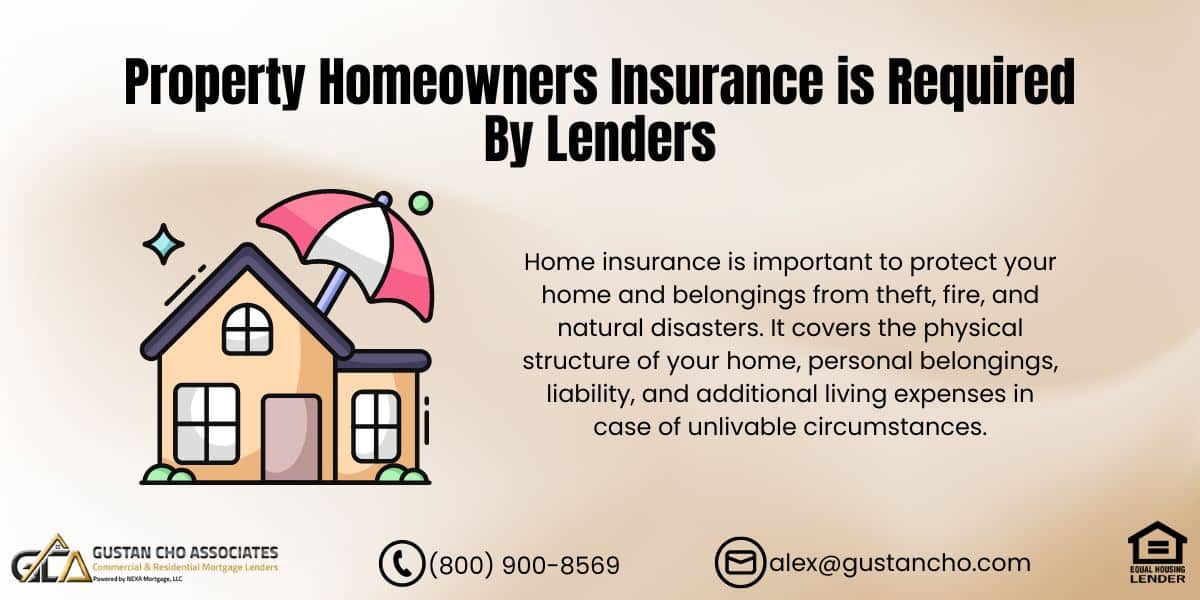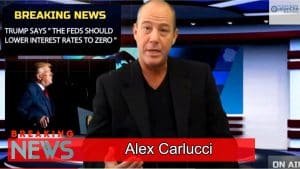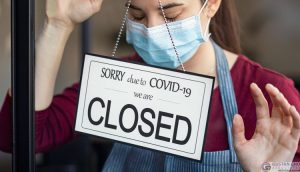Brent Norkus, an insurance agent for Goosehead Insurance covers property homeowners insurance in this extensive guide. Property homeowners insurance is mandatory on all homes that are mortgaged with lenders. Lenders require homeowners insurance in the event the property gets damaged due to fire or other hazards. The home is the lender’s collateral and needs to be insured.
Property homeowners insurance, commonly referred to as homeowners insurance, is a type of insurance policy that provides coverage for a homeowner’s property and liabilities.
Property homeowners insurance typically includes protection for the physical structure of the home, personal belongings, and liability coverage for injuries or property damage that the homeowner or their family members may cause to others. In the following paragraphs, Brent Norkus and team will cover property homeowners insurance and how it works.
What Are The Key Components of Property Homeowners Insurance
In the following sections, we will cover key components of property homeowners insurance. Dwelling coverage covers the cost of repairing or rebuilding the physical structure of your home in the event of damage from covered perils such as fire, windstorm, hail, lightning, theft, vandalism, and more. The coverage amount is usually based on the replacement cost of the home.
What is Personal Property Coverage
Personal Property Coverage provides coverage for your personal belongings, such as furniture, clothing, electronics, and other items, if they are damaged or stolen. The coverage is typically a percentage of the dwelling coverage. Liability Coverage protects you against financial loss if you are found legally responsible for someone else’s injury or property damage. It may cover legal expenses, medical expenses, and damages.
Additional Living Expenses (ALE) or Loss of Use
If your home becomes uninhabitable due to a covered peril, this coverage helps pay for temporary living expenses, such as hotel bills or rental costs. Other Structures Coverage covers structures on your property that are not attached to the main dwelling, such as a detached garage, shed, or fence.
Property homeowners insurance is often a requirement for mortgage lenders, and it provides valuable protection for one of the most significant investments many people make—their homes.
Medical Payments to others covers medical expenses for guests who are injured on your property, regardless of fault. It’s important to carefully review and understand the terms, conditions, and exclusions of your homeowners insurance policy. Additionally, homeowners may need to choose between different policy types, such as basic policies, broad-form policies, or comprehensive policies, depending on their specific needs and budget. Speak With Insurance agent about property homeowners insurance
Property Homeowners Insurance Mortgage Guidelines
Lenders require property homeowners insurance. This is because in the event of a fire or other disaster, their collateral, which is the borrower’s home, is protected. When a homeowner insures their home, they are insuring the home for the total amount that it would cost to replace the damaged part of their home.
The property homeowners insurance covers the damages in the event if the property was destroyed due to fire or other hazard to the home.
Homeowners who do not have proper coverage, the homeowner’s insurance company will only replace part of the damaged value. There is minimum coverage the lender requires. However, having higher coverage is optional and up to the homeowner. It is highly recommended homeowners have ample insurance coverage in the event of fire and/or other disaster
Insuring Home With Property Homeowners Insurance
In this section, we will cover replacement cost of property insured by your insurance carrier. Property Homeowners Insurance that pays the policyholder the cost of replacing the damaged property without deduction for depreciation is referred to as replacement cost insurance.
Many insurance companies offer multi-policy discounts with a master policy. Master insurance is when you have autos and other insurance policy with your homeowners insurance policy.
Property replacement cost insurance is limited to a maximum dollar amount. Homeowners should carefully study and review their homeowners policy. Homeowners should make sure they have enough coverage in the event a claim needs to be made. Lenders will only require the minimum coverage which may not be enough to protect your assets
What Are The Guaranteed Replacement Cost
Homeowners Insurance that pays the full cost of replacing damaged property, without a deduction for depreciation and without a dollar limit. This coverage is not available in all states and some companies limit the coverage to 120 percent of the cost of rebuilding your home. This gives you protection against such things as a sudden increase in construction costs due to a shortage of building materials.
Click here to get an advice about property homeowners insurance
Actual Cash Value Determined By Insurance Company
Property homeowners insurance under which the insurance policyholder receives an amount equal to the replacement value of the damaged property minus an allowance for depreciation. Unless a homeowner’s policy specifies that property is covered for its replacement value, the coverage is for actual cash value. For a quick estimate of the amount to rebuild your home, multiply the local building costs per square foot by the total square footage of your house. To find out the building rates in your area, consult your local builders’ association or real estate appraiser.
Factors Determining Value of Cost of Replacement Value of Home
 There are various factors that determine the value of the home’s replacement costs by your insurance company. Local construction costs. The square footage of the structure. The type of exterior wall construction: frame, masonry (brick or stone) or veneer. The style of the house (ranch, colonial). The number of bathrooms and other rooms. The type of roof.
There are various factors that determine the value of the home’s replacement costs by your insurance company. Local construction costs. The square footage of the structure. The type of exterior wall construction: frame, masonry (brick or stone) or veneer. The style of the house (ranch, colonial). The number of bathrooms and other rooms. The type of roof.
Attached garages, fireplaces, exterior trim and other special features like arched windows affect the homeowners insurance premium. Be sure to check the value of your homeowners’ insurance policy against rising local building costs each year.
Ask your homeowners’ insurance agent or company representative about adding an “Inflation Guard Clause” to your homeowners policy. This automatically adjusts the dwelling limit when you renew your policy to reflect current construction costs in your area. Also, be sure to increase the limit of your homeowners policy if you make improvements or additions to your house. You can pick any insurance company of your choice. Shop at different insurance companies and see if you can get the best comprehensive coverage for the lowest premium.
FAQ About Property Homeowners Insurance is Required By Lenders
- 1. What is property homeowners insurance? Home insurance is important to protect your home and belongings from theft, fire, and natural disasters. It covers the physical structure of your home, personal belongings, liability, and additional living expenses in case of unlivable circumstances.
- 2. Why do mortgage lenders require property homeowners insurance? Lenders require this insurance to protect their investment, as the insured home is collateral for the mortgage. If the home were damaged or destroyed without insurance, the homeowner and the lender would suffer financial losses.
- 3. What are the key components of property homeowners insurance? The key components include:
- Dwelling Coverage: The amount mentioned covers the expenses incurred in repairing or reconstructing your house.
- Personal Property Coverage: This provides protection for your personal items.
- Liability Coverage: It covers legal fees and damages if someone is injured on your property.
- Additional Living Expenses (ALE): This helps with living costs if your home is uninhabitable after a disaster.
- 4. What does ‘replacement cost’ mean in the context of homeowners insurance? Replacing or rebuilding your home or repairing damages is known as replacement cost. This cost is calculated without considering depreciation and involves using similar quality and kind of materials.
- 5. What is the guaranteed replacement cost? Guaranteed replacement cost is an extended coverage that pays the full cost to rebuild your home as it was before the damage, without considering depreciation and often without a dollar limit. However, some policies limit this to 120% of the home’s value.
- 6. What is actual cash value coverage? If you have actual cash value coverage, the insurance company will consider the depreciation costs while compensating you for rebuilding your home. However, the reimbursement amount may not be sufficient to cover the complete cost of restoration or reconstruction.
- 7. How can homeowners ensure their insurance coverage keeps up with rising building costs? It is recommended that homeowners review their policy every year and consider adding an inflation guard clause. This clause automatically modifies the coverage limit according to present-day construction costs. Updating the coverage after making any home improvements or significant purchases is also crucial.
- 8. What is the right of rescission in homeowners insurance? The right of rescission in the context of mortgage refinancing allows homeowners three days to reconsider their decision after closing on a refinanced mortgage. This isn’t directly related to insurance but is important in refinancing processes that might involve reviewing insurance coverage.
- 9. How do insurers determine the replacement cost of a home? Insurers use various factors to determine a home’s replacement cost, including local construction costs, square footage, construction type, house style, number of rooms, and special features like fireplaces and attached garages.
- 10. Can homeowners choose their insurance provider? Yes, homeowners can shop around and choose any insurance provider that meets their needs, ensuring they receive the most comprehensive coverage at the best rate.
Speak With Insurance agent about property homeowners insurance








